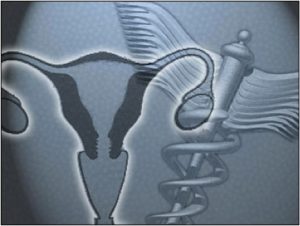Administrative Core
Site: Northwestern University
Principal Investigator: Teresa K. Woodruff, PhD
Rationale
 The overarching purpose of the Oncofertility Consortium is to address the fertility threat posed by today’s highly effective cancer treatments in young men, women, and children and to serve as an authoritative voice for research, clinical practice, and training at the intersection of oncology, pediatrics, reproductive science and medicine, biomechanics, material science, mathematics, social science, bioethics, religion, policy research, reproductive health law, cognitive and learning science in a new discipline called oncofertility.
The overarching purpose of the Oncofertility Consortium is to address the fertility threat posed by today’s highly effective cancer treatments in young men, women, and children and to serve as an authoritative voice for research, clinical practice, and training at the intersection of oncology, pediatrics, reproductive science and medicine, biomechanics, material science, mathematics, social science, bioethics, religion, policy research, reproductive health law, cognitive and learning science in a new discipline called oncofertility.
The development of this new discipline requires experts from a variety of fields in the creation of a common language and mechanisms to support communication and collaboration between Consortium members.
The interdisciplinary approach of the Oncofertility Consortium to the issue of fertility management after cancer is rather unique. Solving the distinct needs of cancer survivors is a complicated task that requires consistent collaboration and exchanges of ideas, successes and failures across a wide variety of specialties. Thus, the group must maintain its ability to cross disciplines in order to solve problems, continue developing solutions, and translate this progress into direct patient benefits. The work of the Administrative Core is as much about keeping the vision of the ultimate scope of the project in front of the individuals and groups involved and facilitating interaction among them as it is about traditional administrative governance.
The objectives of this program are to:
- Enable the interdisciplinary group and provide members with a strong, unified vision.
- Reduce barriers, encourage research, solve problems, maintain documents, and provide a robust intellectual environment with shared vision and an altruistic approach to credit and results.
- Ensure that administrative barriers do not interrupt the flow of intellectual energy and that the new ideas and data that are created at the boundaries of traditional disciplines are continuously fed back into the system.
Initial funding of this research was supported by the National Institutes of Health through the NIH Roadmap for Medical Research, Grant 5UL1DE019587. Funding continues under the Center for Reproductive Health After Disease (P50HD076188) from the National Institutes of Health National Center for Translational Research in Reproduction and Infertility (NCTRI)

